To Live Justly in Unjust Times
Key to the concept of democracy is the notion that those who are elected to serve the people will be good stewards of this responsibility. That these individuals will recognize the tremendous faith and trust that has been placed in them and will act, to the best of their ability, in accordance with this obligation is the basis on which trust is placed in them. It is hard to watch the crumbling visage of the US political (not to mention cultural) structure without recognizing that those who have been empowered by the people to serve their interests have systematically and brutally betrayed not so simple a thing as a “constitutional duty” but the ethical imperative that is at the heart of a functioning democracy.
This summer whilst Bradley Manning – who leaked hundreds of thousands of documents to Wikileaks – sat on trial for displaying the macabre reality of the US’s wars, Edward Snowden emerged to expose the government’s vast surveillance apparatus, whilst the Supreme Court struck down the Voting Rights Act, and the warring factions in Washington D.C. proved that they could come together to ensure that Americans are still spied upon. While Manning may have escaped from the most dangerous of the charges placed against him – aiding the enemy – he was still found guilty of enough other charges as to render it rather certain that he will face many more years behind prison bars for trying to break the bars of ignorance that so imprison many Americans.
Indeed, as the US government has striven to persecute and prosecute those who would dare reveal governmental misdeeds it has simultaneously made it abundantly clear exactly why such leaks are necessary. A point only amplified by recent comments made by Senator Ron Wyden who noted that those in government who would like to warn the public are often barred from doing so – and one is left hoping in vain that such individuals (who are elected to serve the public trust) shared the same moral fortitude as is displayed by the likes of Manning and Snowden. When a populace cannot trust those who are supposed to be representing their interests, than what are they meant to do?
Probably to go shopping.
While Manning’s verdict was delivered on July 30, 2013 it seemed like it could be a final injustice to cap a summer which has been defined by the unsavory elements that it has continually revealed about the state of the US: surveillance, disenfranchisement, the gutting of a once mighty city. Yet for all of the occurrences of late there was an aspect of Manning’s verdict that seemed much less surprising. Though there may have been a moment of euphoria that he was not found guilty of aiding the enemy it immediately vanished amidst the numerous other charges for which he was found guilty. But was it a surprise? It is not a question asked from a strictly legal position, rather from an ethical inquiry, namely: is it still a shock in any way when those who dare challenge the power structures of our country (and world) are punished severely?
Granted, one could easily plead ignorance for not knowing about Manning’s trial, or for not knowing about the continued revelations about the NSA, or about the assault on women’s reproductive rights, or about the clear dissolution of Democracy in Detroit, or about any number of important happenings that reveal the gangrene taking root in the limbs of our society. After all, there are political sex scandals to cover, a royal baby being born, and plenty of other events that rile people up exactly enough for them to yell at their television screen for a few moments before they are soothed by the commercials.
At moments like this it is actions like those taken by Manning and Snowden that reveal that there is still an ethical demand that binds us to one another, and still an ethical demand that exhorts those of us with access to important information to use this for the betterment of our fellows instead of in the service of those oppressing our fellows. While their acts of rebellion and refusal may see them painted as traitors by some and while their “law breaking” may result in their imprisonment, it must be remembered that fidelity to injustice is to allow oneself to suffer injustice and to allow others to suffer injustice due to ones own disavowal of duty. When faced with injustice – from the systematic abuses encountered by Manning and Snowden to the small-scale travesties of daily life – what we must reclaim is our ability to refuse, our agency for acting instead of simply being acted upon.
In his book The Rebel, Albert Camus describes rebellion as an ethical demand, an existential category of being wherein the only way that a person can survive as an individual amidst the madness of society is by willfully setting oneself in opposition to the miscarriages of justice that lurk around every corner. As Camus writes:
“rebellion, in man, is the refusal to be treated as an object and to be reduced to simple historical terms. It is the affirmation of a nature common to all men, which eludes the world of power.” (Camus, 250)
In forsaking “a nature common to all” the “world of power” has consistently demonstrated that the only remaining moral choice is one that sets an individual in opposition to this “world of power.” Attempts to battle for a “seat at this table” of the powerful fail to recognize that once seated at the table all the diners will be expected to feast on the rest of humanity, and while one may have fought for a seat out of honest desire to serve justice in attempting to win a seat at this table one must first abandon the recognition that the very existence of the table is part of the problem.
Resistance – be it mental or physical – becomes one of the last bulwarks that we still have available, which is why those who dare resist are vilified and locked away lest their moral acts prove inspirational. From voting rights, to reproductive rights, to the right to privacy, we are being crushed sometimes by real police and bulldozers and sometimes by metaphorical ones, and as Herbert Read wrote (in A One Man Manifesto [italics in original]):
“The people who get excited…are the people who run the bulldozers that cause the political landslides. These bulldozers are very powerful machines, serviced by fanatical politicians and journalists, and they go about the world bulldozing over peasants and workers and in a general way creating chaos…The odd thing is that we all submit to this bulldozing. Hardly a squeak is to be heard. We are pushed here and we are pushed there, and at the end of the week we hand over up to half our pay in taxes to feed the bulldozers, to keep them going against us. Nothing is so significant of the present age, and perhaps a symptom of its incurable decadence, as the prevailing apathy in all countries – the refusal to fight the bulldozing politicians and generals, the willingness to pay. It was not always so. Our liberties were won by the simple expedient of refusing to furnish the means (ship-money, etc.) of bulldozing the people…Technically it may be treason: but it was by ‘treason’ that we won the Magna Carta and every other advance in political liberty.” (Read, 154)
Defiance of power, holding to ethical values, daring to pursue the truth, it is in clinging to these as they are cast into ruins by contemporary society that we can still draw strength to act. And it is in standing for such demands that people like Manning and Snowden are attacked. Yet there should be no doubt, or surprise, that trying to stay ethically consistent brings only wrath upon oneself; as Max Horkheimer wrote:
“The career of the revolutionary does not advance through banquets and honorary titles, interesting research and professional salaries, but through misery, disgrace, ingratitude, and imprisonment towards an uncertainty which only an almost superhuman faith can penetrate.” (quoted in Wiggershaus, 49)
Faith in the system that governs us is woefully misplaced, and it is long past time for us find faith in ourselves again. It may not be glamorous or enjoyable, indeed it may be lonely and miserable, but it is only by confronting and battling the injustices of our world that we may earn the right to actually experience elation. Or, to step away from radical thinkers, let us take up the exhortation found in Deuteronomy (16:20):
“Tzedek Tzedek Tirdof (translation: Justice, Justice shall you pursue)”
It is a demand that Bradley Manning and Edward Snowden have lived up to, but their actions do not relieve us of our obligation. We are also that “you” and “justice, justice” we must also pursue. Even if at times it may seem like it is just us doing so.
Bradley Manning’s Support Page – www.bradleymanning.org
On this topic:
Living Within Justice is not Living With Injustice
“More than Machinery, We need Humanity”
Works Cited
Camus, Albert. The Rebel. Vintage, 1991.
Read, Herbert. A One Man Manifesto. Freedom Press, 1994.
Wiggershaus, Rolf. The Frankfurt School. MIT Press, 2007.



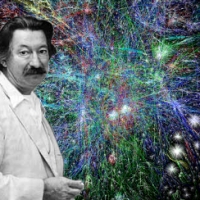
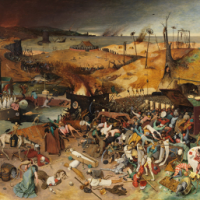


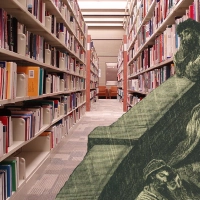
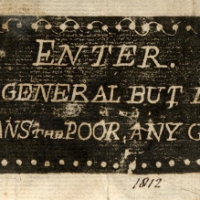
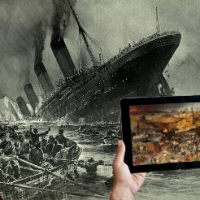
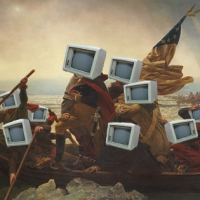

Excellent! You are absolutely right! It is the erosion of ethics, morals and rights revealed by this whole shambles that worries me the most! Very well written and very well argued! I shall follow your blog 🙂
Pingback: If the NSA is the Fever, is the Internet the Disease? | LibrarianShipwreck
Pingback: The Summer of Fatigue and the Angel of History | LibrarianShipwreck
Pingback: From Occupy to Preoccupied | LibrarianShipwreck
Pingback: Don’t Say We Didn’t Warn You… | LibrarianShipwreck
Pingback: Q: Who gets shut out in the shutdown? A: All of us. | LibrarianShipwreck
Pingback: In 2014…they’re resolved to keep watching… | LibrarianShipwreck
Pingback: Towards Which Utopia in 2014? | LibrarianShipwreck
Pingback: The Moral of the Story | LibrarianShipwreck
Pingback: Awaiting the Other Shoe | LibrarianShipwreck
Pingback: Seeing Each Other in the Candle’s Light | LibrarianShipwreck
Pingback: Ashley Madison and the Internet’s “Original Accident” | LibrarianShipwreck